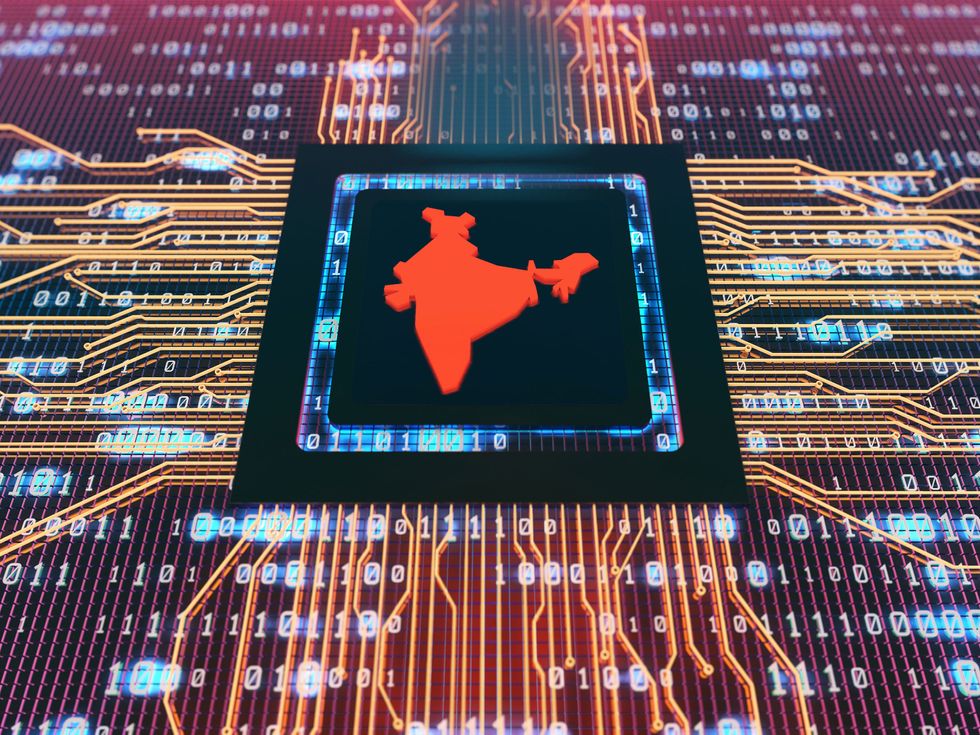Samsung names Apple vet to lead NA's new AI team
















The government of India has approved a major investment in semiconductor and electronics production that will include the country’s first state-of-the-art semiconductor fab. It announced that three plants—one semiconductor fab and two packaging and test facilities—will break ground within 100 days. The government has approved 1.26 trillion Indian rupees (US $15.2 billion) for the projects.
India’s is the latest in a string of efforts to boost domestic chip manufacturing in the hope of making nations and regions more independent in what’s seen as a strategically critical industry. “On one end India has a large and growing domestic demand and on the other end global customers are looking at India for supply-chain resilience,” Frank Hong, chairman of Taiwan-based foundry Powerchip Semiconductor (PSMC), a partner in the new fab, said in a press release. “There could not have been a better time for India to make its entry into the semiconductor manufacturing industry.”
The country’s first fab will be an $11 billion joint venture between PSMC and Tata Electronics, a branch of the $370 billion Indian conglomerate. Through the partnership, it will be capable of 28-, 40-, 55-, and 110-nanometer chip production, with a capacity of 50,000 wafers per month. Far from the cutting edge, these technology nodes nevertheless are used in the bulk of chipmaking, with 28 nm being the most advanced node using planar CMOS transistors instead of the more advanced FinFET devices.
“The announcement is clear progress toward creating a semiconductor manufacturing presence in India,” says Rakesh Kumar, a professor of electrical and computer engineering at University of Illinois Urbana-Champaign and author of Reluctant Technophiles: India’s Complicated Relationship with Technology. “The choice of 28-nm, 40-nm, 55-nm, 90-nm, and 110-nm also seems sensible, since it limits the cost to the government and the players, who are taking a clear risk.”
According to Tata, the fab will make chips for applications such as power management, display drivers, microcontrollers, as well as and high-performance computing logic. Both the fab’s technological capability and target applications point toward products that were at the heart of the pandemic-era chip shortage.
The fab is in a new industrial zone in Dholera, in Gujarat, Prime Minister Narendra Modhi’s home state. Tata projects it will directly or indirectly lead to more than 20,000 skilled jobs in the region.
In addition to the chip fab, the government approved investments in two assembly, test, and packaging facilities, a sector of the semiconductor industry currently concentrated in Southeast Asia.
Tata Electronics will build a $3.25 billion plant at Jagiroad, in the eastern state of Assam. The company says it will offer a range of packaging technologies: wire bond and flip-chip, as well as system-in-package. It plans to expand into advanced packaging tech “in the future.” Advanced packaging, such as 3D integration, has emerged as a critical technology as the traditional transistor scaling of Moore’s Law has slowed and become increasingly expensive. Tata plans to start production at Jagiroad in 2025, and it predicts the plant will add 27,000 direct and indirect jobs to the local economy.
A joint venture between Japanese microcontroller giant Renesas, Thai chip packaging company Stars Microelectronics, and India’s CG Power and Industrial Solutions will build a $900 million packaging plant in Sanand, Gujarat. The plant will offer wire-bond and flip-chip technologies. CG, which will own 92 percent of the venture, is a Mumbai-based appliances and industrial motors and electronics firm.
There’s already a chip-packaging plant in the works in Sanand from a previous agreement. U.S.-based memory and storage maker Micron agreed last June to build a packaging and test facility there. Micron plans to spend $825 million in two phases on the plant. Gujarat and the Indian federal government is set to cover a further $1.925 billion. Micron expects the first phase to be operational by the end of 2024.
After an initial overture failed to attract chip companies, the government upped its ante. According to Stephen Ezzell at the Washington, D.C.–based policy-research organization the Information Technology and Innovation Foundation (IT&IF), India’s semiconductor incentives are now among the most attractive in the world.
In a report issued two weeks before the India fab announcement, Ezzell explained that for an approved silicon fab worth at least $2.5 billion and making 40,000 wafer starts per month the federal government will reimburse 50 percent of the fab cost with a state partner expected to add 20 percent. For a chip fab making smaller-volume products, such as sensors, silicon photonics, or compound semiconductors, the same formula holds, except that the minimum investment is $13 million. For a test and packaging facility, it’s just $6.5 million.
India is a rapidly growing consumer of semiconductors. Its market was worth $22 billion in 2019 and is expected to nearly triple to $64 billion by 2026, according to Counterpoint Technology Market Research. The country’s minister of state for IT and electronics, Rajeev Chandrasekhar projects further growth to $110 billion by 2030. At that point, it would account for 10 percent of global consumption, according to the IT&IF report.
About 20 percent of the world’s semiconductor design engineers are in India, according to the IT&IF report. And between March 2019 and 2023 semiconductor job openings in the country increased 7 percent. The hope is that the investment will be a draw for new engineering students.
“I think it is a big boost for the Indian semiconductor industry and will benefit not just students but the entire academic system in India,” says Saurabh N. Mehta, a professor and chief academic officer at Vidyalankar Institute of Technology, in Mumbai. “It will boost many startups, jobs, and product-development initiatives, especially in the defense and power sectors. Many talented students will join the electronics and allied courses, making India the next semiconductor hub.”








